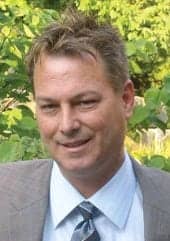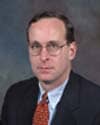Top Sleep Doctor Steven Hull, MD, FCCP, FAASM, guides his sleep practice, both one-on-one and in administrative roles, using traditional principles to incorporate new knowledge and care models.

Steven Hull, MD, FCCP, FAASM
When a sick patient walks into a physician’s office, it is the patient who has the disease. It is also the patient who holds the clues that can reveal what that disease is. It is the physician’s job to properly use those clues to determine what the problem is and how best to treat it. Steven Hull, MD, FCCP, FAASM, uses some basic principles in his practice to guide him through the process: listen to the patient; if nothing is broken, don’t fix it; and whatever you do, do no harm.
“These are old adages, but the philosophy really centers around patient care. If you listen, you can work with the patient to figure out what is wrong and provide the proper treatment,” Hull says. The creed guides Hull in the decisions he makes treating patients one-on-one, as administrator of a comprehensive sleep company that treats more than 8,000 sleep patients annually, and as a researcher who has been involved in more than 275 clinical trials.
Hull is president of somniTech/somniCare Inc, a division of Graymark, based in Overland Park, Kan; director of Sleep Disorders and Vaccine Research for Vince and Associates Clinical Research; a sleep medicine specialist and founder of Midwest Sleep Specialists, LLC; and a clinical assistant professor in the department of family medicine at the Kansas City University of Medicine and Biosciences. “I look at my practice as a portfolio, and no day is ever the same,” Hull says.
The ability to impact many drove Hull into administration, research, and education; the ability to impact one drew Hull to medicine and continues to inspire him to fit patient care into his full schedule. “My hope has been to be able to not only provide care for my patients but to enhance health care in a way that benefits far more people—more than just a couple of thousand—than any one physician can ever personally manage himself or herself,” Hull says.
Don’t Fix What Isn’t Broken
Hull first announced his intention to enter medicine when, as an active fifth grader, he found himself getting stitches in the emergency room for a head laceration. “I wanted to be on the other side of the drape,” Hull says. Although his parents dismissed the thought as that of an impressed young boy, the desire stayed with Hull and was reinforced by a summer spent working in the local industry: coal mining. “It was fun as a summer job, but I knew I did not want to do that work day in and day out,” Hull says.
Wanting to make his parents proud, Hull stuck to his original declaration and entered medical school directly out of undergrad. Four years later, he obtained his medical degree from Southern Illinois University in Springfield, Ill. And by 1990, he had completed his internship and residency in internal medicine at St. Francis Medical Center through the University of Illinois College of Medicine in Peoria, Ill.
After a fellowship in pulmonary and critical care medicine at Kansas University Medical Center in Kansas City, Kan, Hull found himself in his first professional medical role as a staff physician at Kaiser Permanente in Kansas City. Not necessarily thinking the position would be a long-term career move, Hull stayed on as he was promoted through the years and ranks to associate medical director.
As he acquired more administrative responsibilities, Hull found he had less time to spend with patients. “I had a very busy practice as an internist, pulmonologist, and sleep physician, but I didn’t have time in the clinic to take care of a full panel of patients. So I had to make a decision that would enable me to maintain my administrative functions but still take care of people,” Hull says.
A colleague in neurology, who had been seeing many sleep patients, suggested that Hull get involved with sleep medicine, where there are fewer emergencies but plenty of fulfilling opportunities. So Hull started Kaiser’s first sleep clinic in 1997 and eventually moved on to somniTech Inc, where he is now president. Hull also obtained additional training in sleep as well as board certifications in pulmonary disease, internal medicine, and sleep medicine.
Listen to Patients
Hull still sees patients one-on-one today, despite his roles as administrator, educator, and researcher. The diversity motivates and inspires him. “A lot of sleep centers’ bread and butter is sleep apnea, and we certainly see our fair share of that. But there are 80 different sleep disorders, and the patient mix is interesting,” Hull says.
Whether the diagnosis is sleep apnea or a relatively less common disorder, somniTech sleep centers are designed to be able to help provide objective data to aid in the diagnosis of all sleep disorders, no matter the treatment required. “We provide a one-stop shop for patients who have sleep disorders,” Hull says.
While somniTech handles the diagnostic testing, somniCare provides the therapy for sleep apnea patients. The practice group, Midwest Sleep Specialists, LLC, offers the initial evaluation and follow-up capabilities required to care for all sleep disorder patients. “So we can help anywhere that a patient falls within the spectrum,” Hull says.
More than 8,000 patients are treated by somniTech/somniCare annually. The company—which is the second-largest sleep company in the Midwest, according to Hull—has either independent diagnostic facilities or hospital contracts in six states: Iowa, Kansas, Minnesota, Missouri, Nebraska, and South Dakota. All of the independent centers are accredited by the American Academy of Sleep Medicine and offer the full range of services.
Diagnostic capabilities do include home testing, which works for somniTech’s experienced staff, although Hull questions the value of these tests when administered by non-sleep specialists. “The American Academy of Sleep Medicine has provided guidelines on who are the best candidates for home testing, who should administer the tests, and that this process be driven by board-certified sleep specialists,” Hull says, noting that patients with co-morbidities or other health problems outside of sleep may not be the best candidates for home testing.
Do No Harm
Home testing complicates matters further from a reimbursement perspective. Many experts, like Hull, feel continued misuse of home testing will drive reimbursement down as payors seek to limit unnecessary testing and expense. This, in turn, will drive the business strategies of sleep centers, likely resulting in some consolidations and closures, alongside the successes.
“Sleep will not be unique in seeing reimbursements go down. It’s up to us as caregivers, physicians, and business leaders to be able to figure out how best to do that with the dollars that are available. I think if you have a comprehensive care model in which you can provide a one-stop shop, there’s opportunity to reduce your expenses and be able to survive long term,” Hull says.
The model is not only beneficial from a business standpoint but from a patient care standpoint as well. “Patients want to go to one place to get done what they need done,” Hull says. If centers cannot compete on price, which is set by payors, they can compete on performance and care. “We want to be better and faster at turnaround times and outcomes,” Hull says.
Achieving this requires an open and flexible mind. Sleep medicine is still in its infancy, and advances still occur that can have a big influence on patient care. “I find it interesting that the field of sleep is evolving. Most of the newer technologies have focused on diagnostics rather than treatment, and part of my interest in the practice of sleep is looking at the different technological advances that may help to improve patient care,” Hull says.
His curiosity led to the second major role he holds today, that with Vince and Associates, a separate company with which somniTech partners on research projects. The relationship first began in 2001, when Brad Vince, DO, president and medical director of the clinical research company, was seeking an expert in sleep. Hull’s first research efforts resulted in the largest enrollment for that trial, and a fruitful relationship was born. More than 275 clinical trials later (primarily in sleep, but also in vaccines, pain/pain management, and pulmonology), Hull finds fulfillment in seeing research patients and has found a mentor and friend in Vince.
Vince is just one role model who Hull credits with having inspired and taught him throughout his life and career. “I’ve had tremendous support and help along the way,” Hull says. He adds Pam Gillis, president emeritus of somniTech, and Russell Rosenberg, PhD, DABSM, the founder and director of the Atlanta School of Sleep Medicine and Technology in Atlanta, Ga, to the list that also includes his parents, Glen and Carol Hull.
These individuals have helped to mold Hull’s outlook, giving shape to the creed by which he practices medicine today: preserve what is not broken; do no harm; and listen to patients, who hold the keys to their diagnosis. It is what has contributed to his role as a top doctor in sleep medicine today.
Renee Diiulio is a freelance writer based in Manhattan Beach, Calif. She can be reached at .




